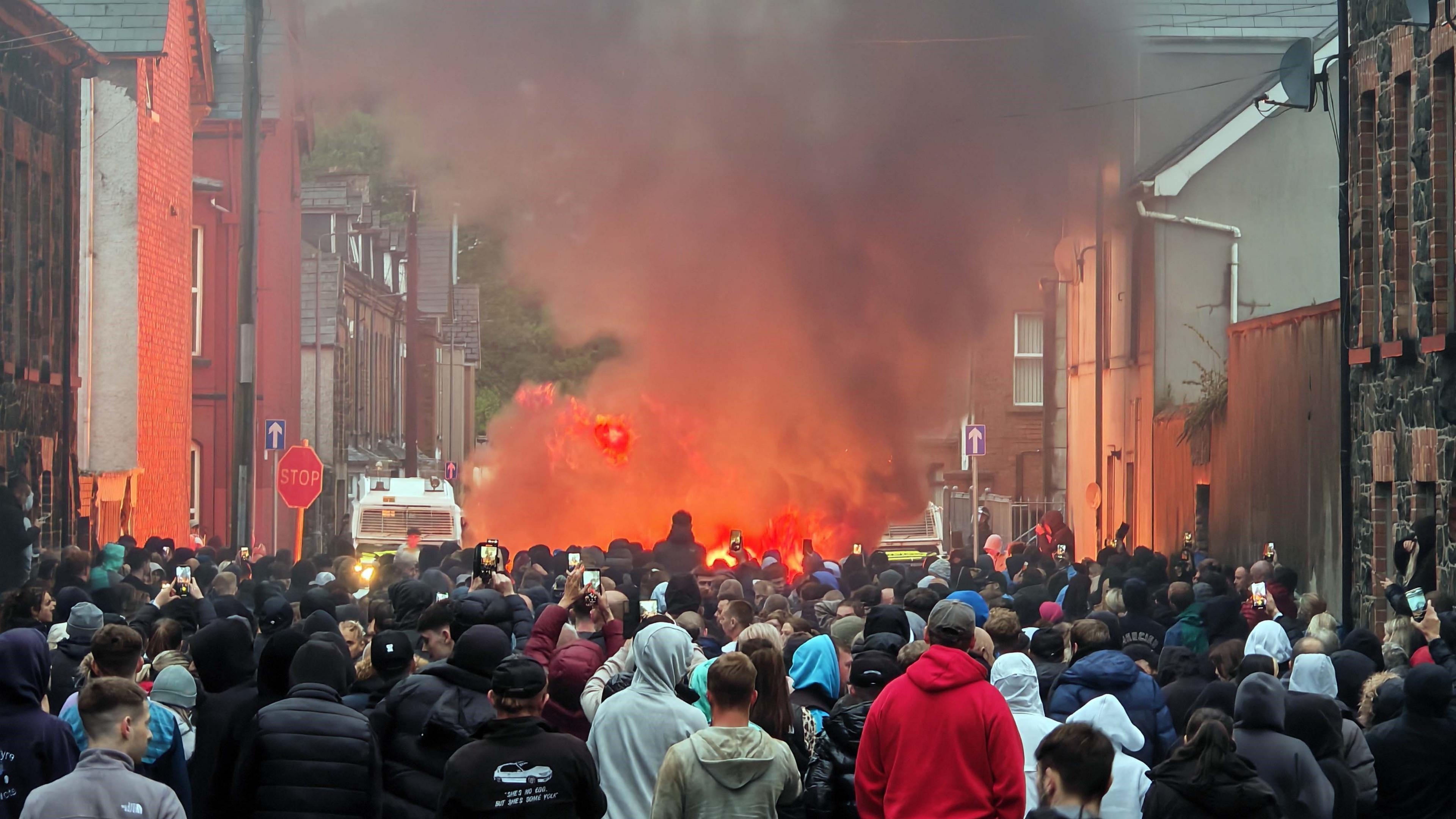PSNI committed to anti-racism plans, says chief constable
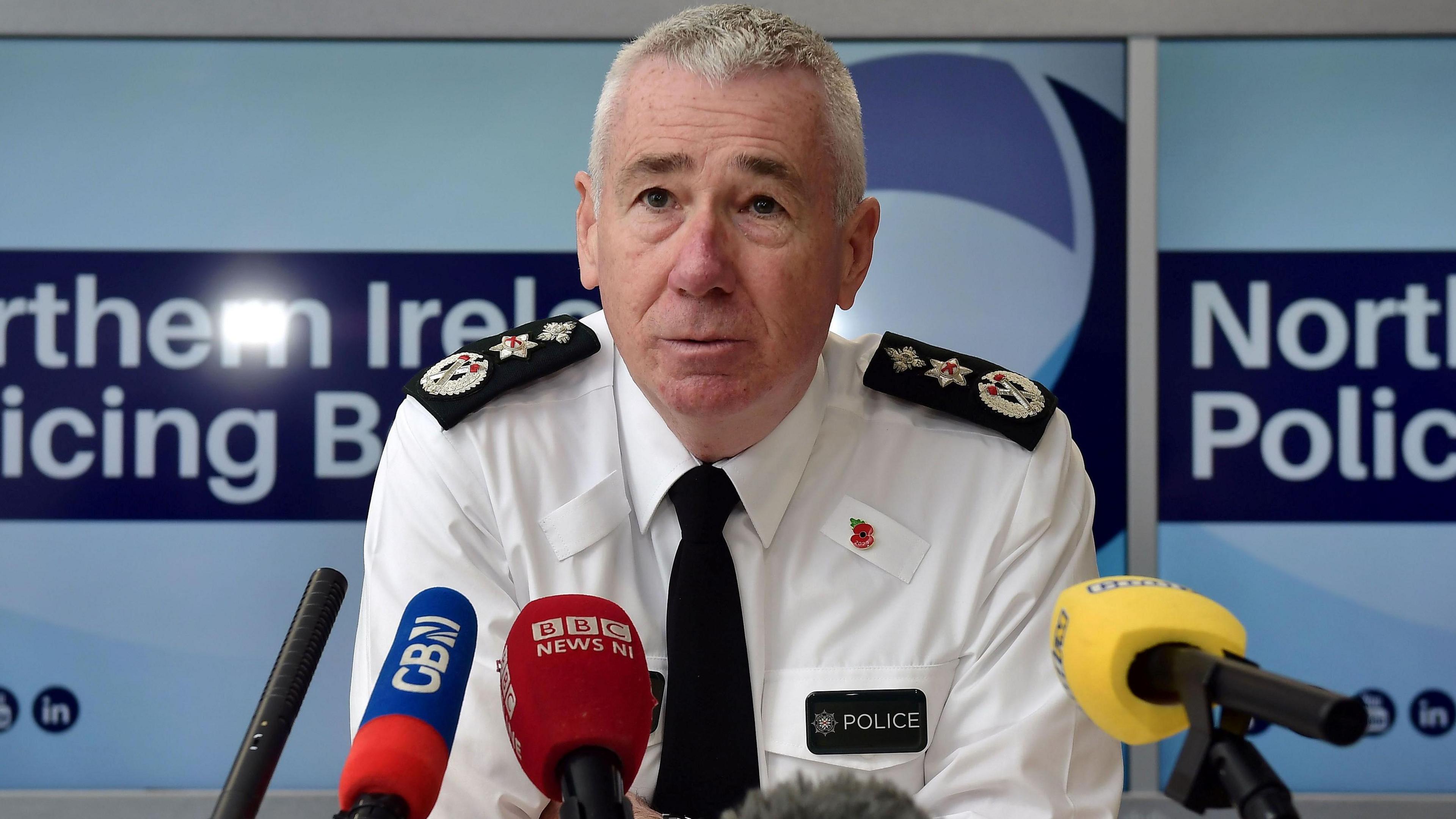
PSNI chief constable Jon Boutcher said the organisation is committed to "being anti-racist"
- Published
The Police Service of Northern Ireland (PSNI) is committed to "being an anti-racist organisation", its chief constable Jon Boutcher has said.
He made the pledge as the organisation launched a Race and Ethnicity Action Plan in Belfast.
The plan comes against the backdrop of a rise in the number of race hate crimes, including rioting in Ballymena in June.
The PSNI has also struggled to be better reflective of wider society in its composition. About 50 of its 6,200 officers are from an ethnic minority background, according to its own data
Issues were also created by how it handled a Black Lives Matter protest in 2020.
The plan, developed following a public consultation last year, is "more than just a document", Mr Boutcher writes in a forward.
"We have made a commitment to being an anti-racist organisation."
Mandatory "anti-racist and cultural competence training" will be delivered to all officers and staff.
It also promises a "zero tolerance" approach on racial misconduct.
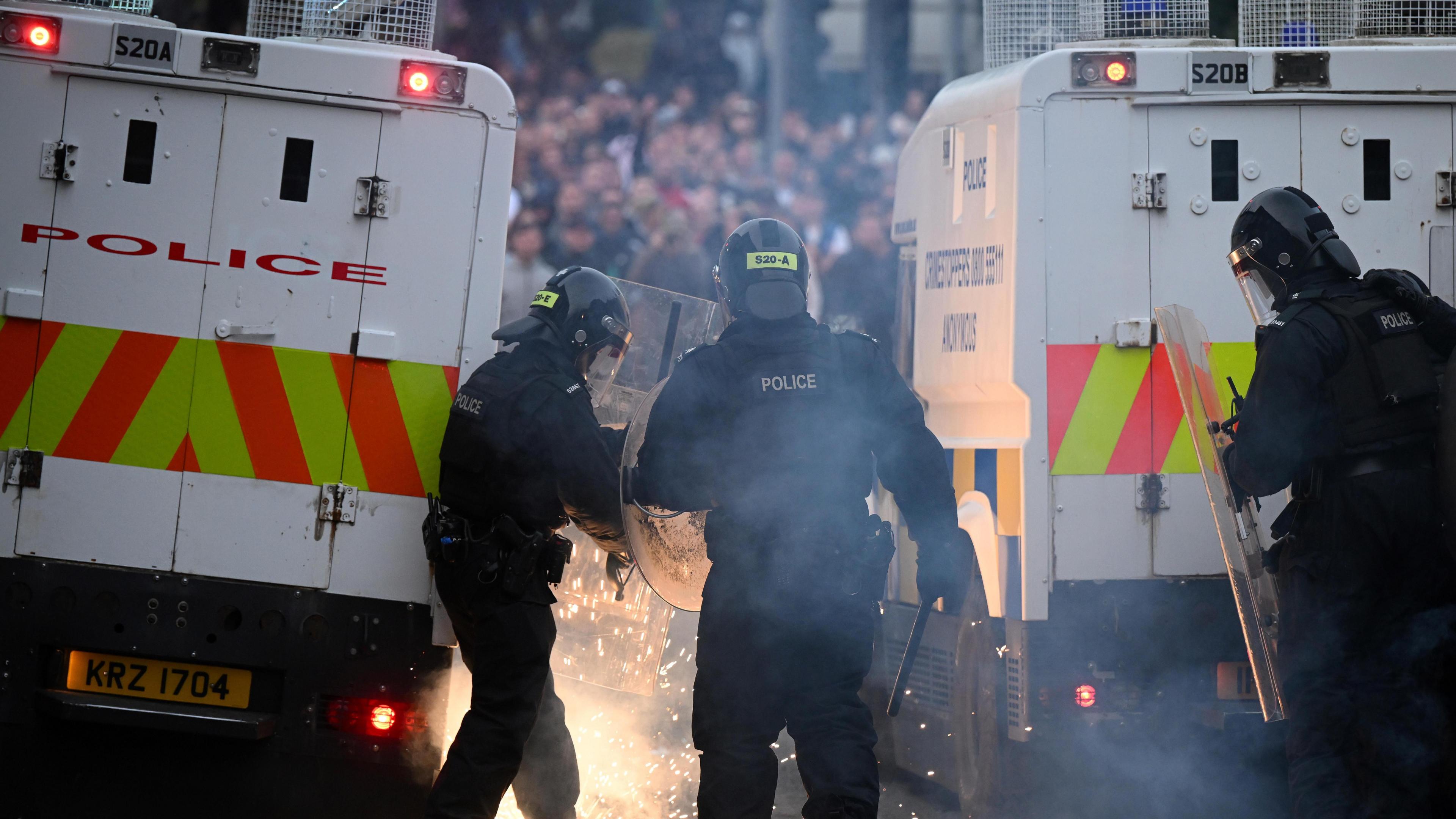
PSNI officers in riot gear responding to a third night of civil unrest on 11 June 2025 in Ballymena
The plan states that, nationally, it is accepted there is racism, discrimination and bias in policing.
"The Police Service of Northern Ireland also accepts this is the case and is determined and fully committed to taking practical and meaningful action."
It also pledges to "robustly" pursue "those who offend against ethnic minority communities".
Mr Boutcher added: "This plan represents our commitment to our ethnic minority communities, ensuring everyone in Northern Ireland feels safe, supported and respected.
"Recent events have demonstrated the need for decisive action and clear leadership to stamp out racism, which clearly exists in communities in Northern Ireland."
Speaking at the plan's launch, Mr Boutcher said Northern Ireland is "a multicultural society" which needs "a multicultural police service" representing it.
"This is about making sure that all of our communities in Northern Ireland understand that we are here for them."
Mr Boutcher said the strategy is especially important in the current climate.
"There are levels of hatred now between communities that seem to have taken us back in time."
'Just the beginning'
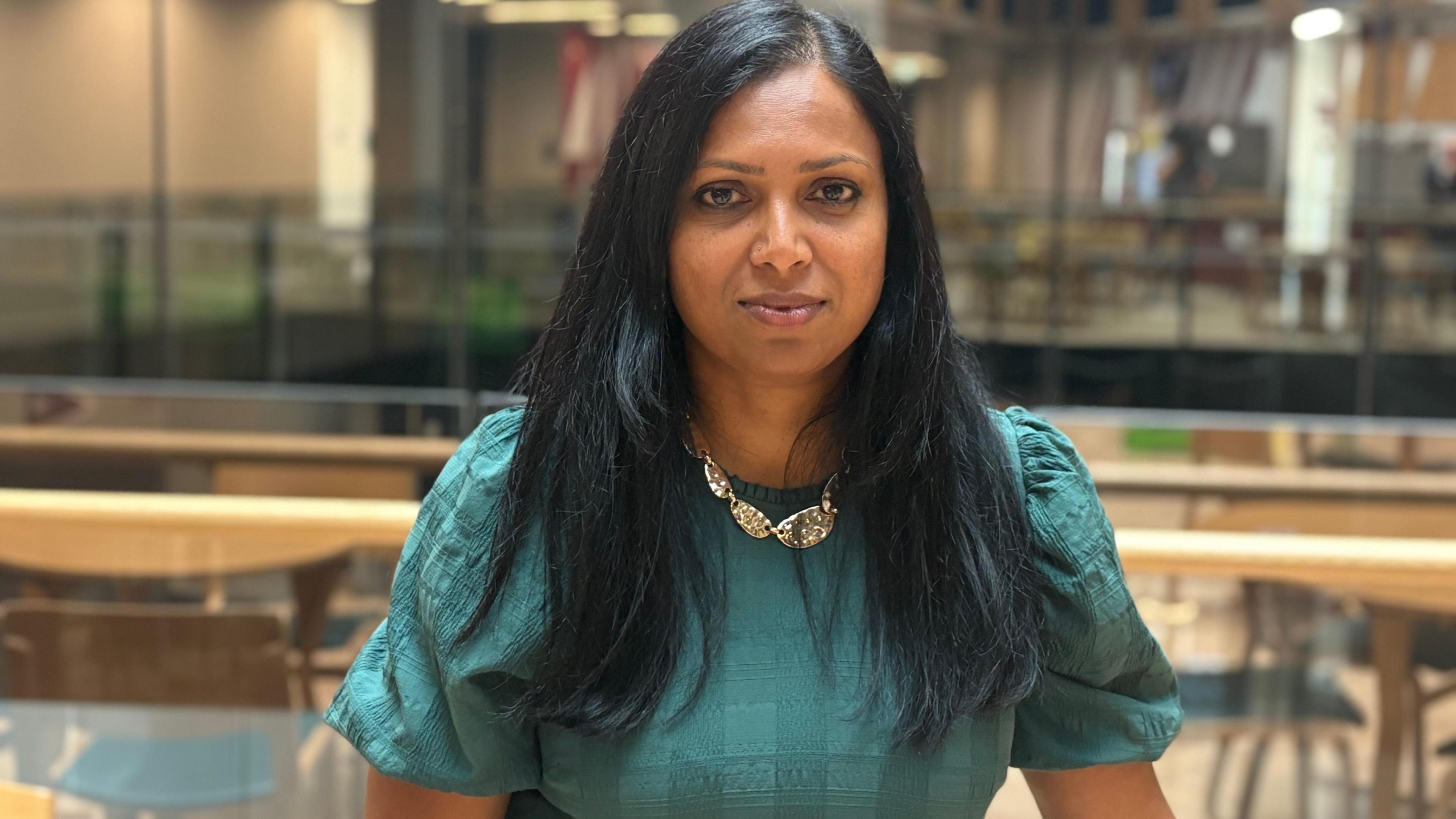
Preeti Yellamaty, who is a community worker, says "The plan recognises that the old approach doesn't work"
Preeti Yellamaty, who is a community worker, said the plan comes at a "really crucial time".
"The minority ethnic communities have experienced a lot of tensions. People who have been living here a number of years, all of a sudden feel like they don't belong here; they're not important, their identity is questioned."
Ms Yellamaty said the new plan makes her feel "hopeful".
"It's recognising Northern Ireland is diverse with so many different groups.
"The plan recognises that the old approach doesn't work. We have to look at something new and different. I'm excited, but this is just the beginning."
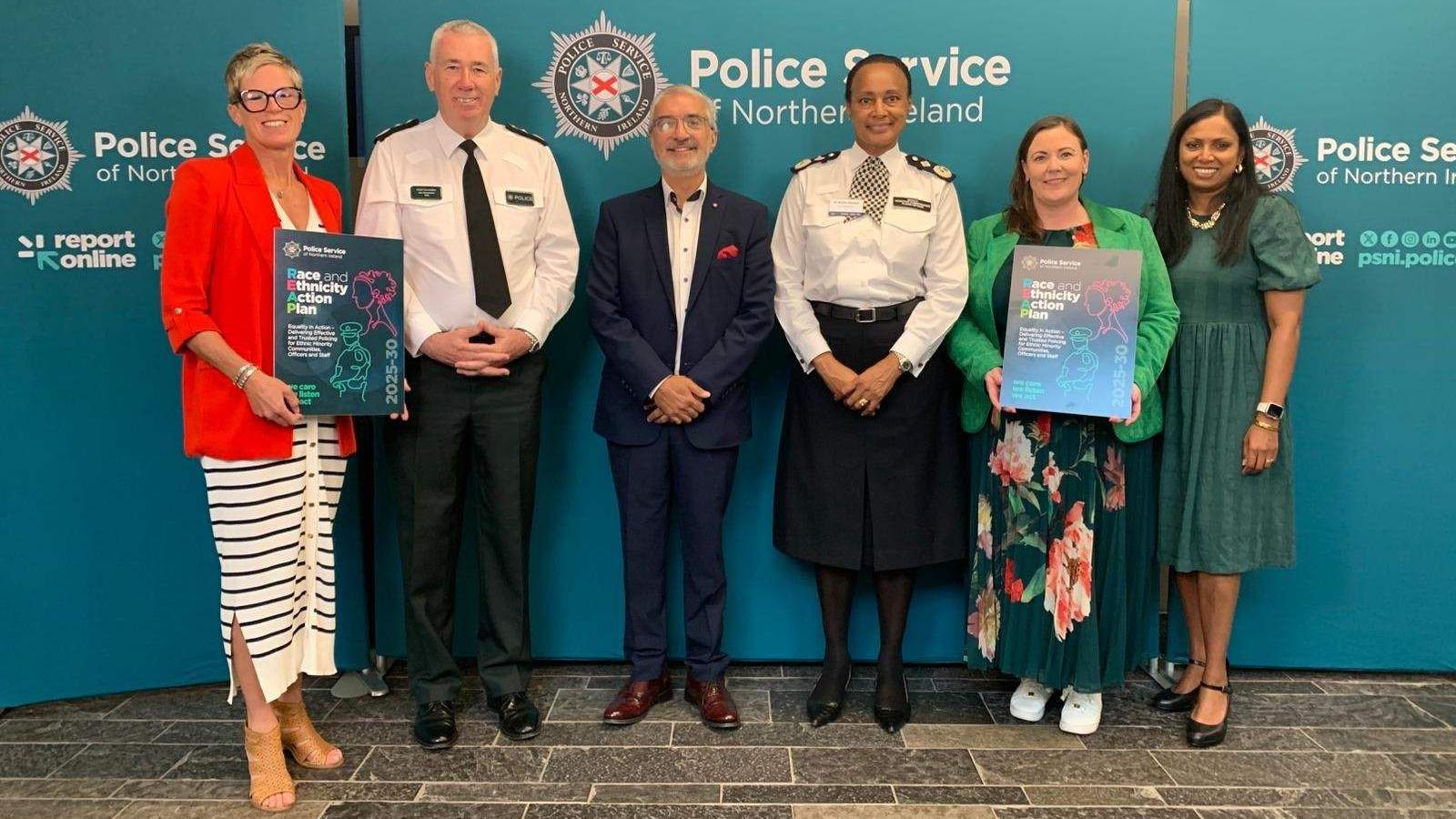
Jon Boutcher (second from left) said the plan is "more than just a document"
'Important step'
Justice Minister Naomi Long said she welcomed the plan, which she said aims to "improve confidence in policing".
"The disorder we have seen on our streets in recent weeks and months targeting minority ethnic communities is abhorrent, and underlines the importance of continuing to support diversity.
"Our society has become so much more diverse in recent years, and it's all the richer for it."
The chair of the Northern Ireland Policing Board, Mukesh Sharma, said there was "much work to do in tackling hate crime".
"Its eradication requires a wider societal response in parallel with a policing one and publication of this action plan is an important step."
Amnesty International's Northern Ireland Director said: "Race hate crime is at a record high, yet many victims still feel unable to report attacks - a stark reflection of mistrust in policing."
Patrick Corrigan added that the plan "won't be measured by words on paper, but by whether communities see real change".
Related topics
- Published11 June
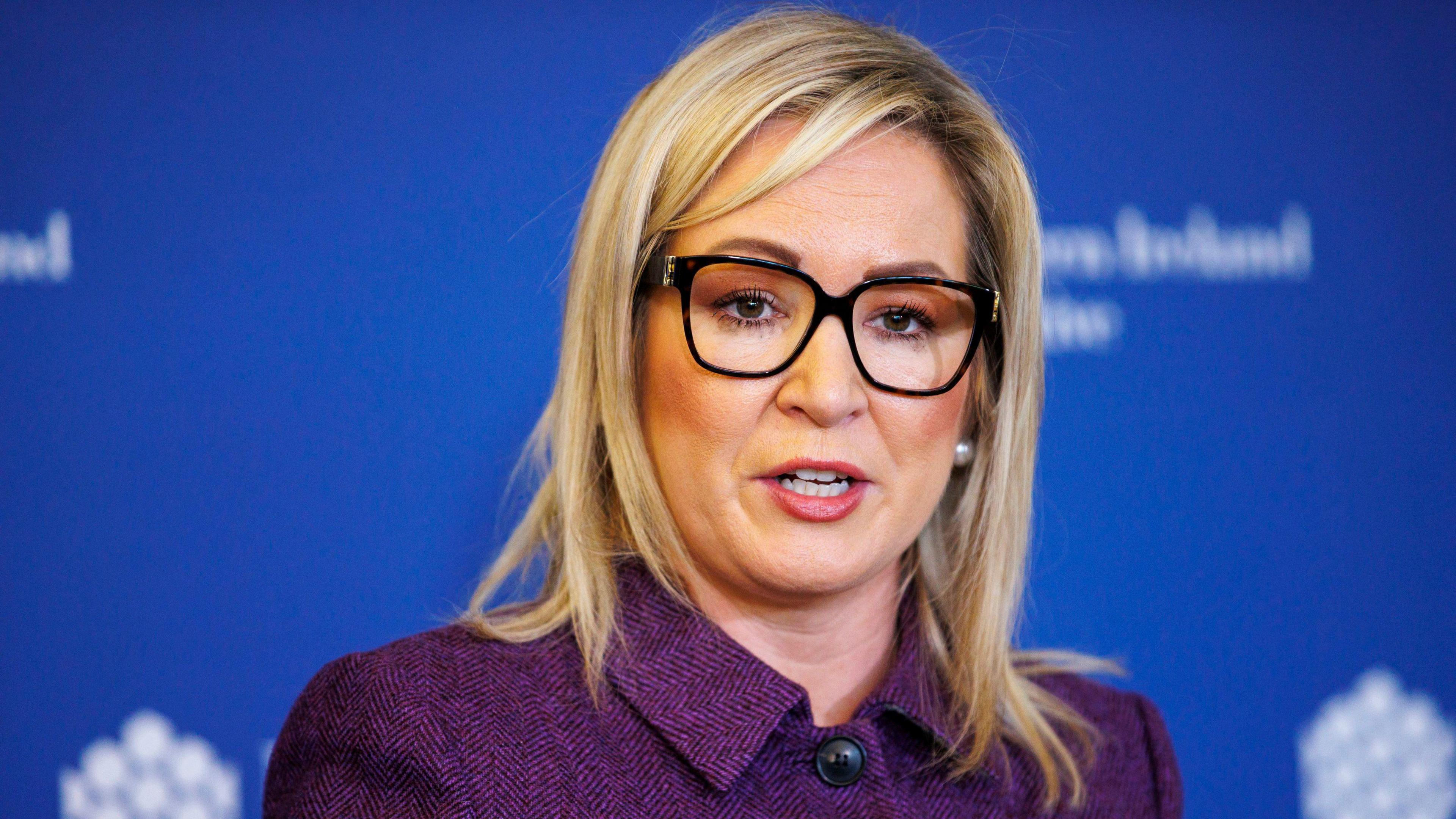
- Published22 December 2020

